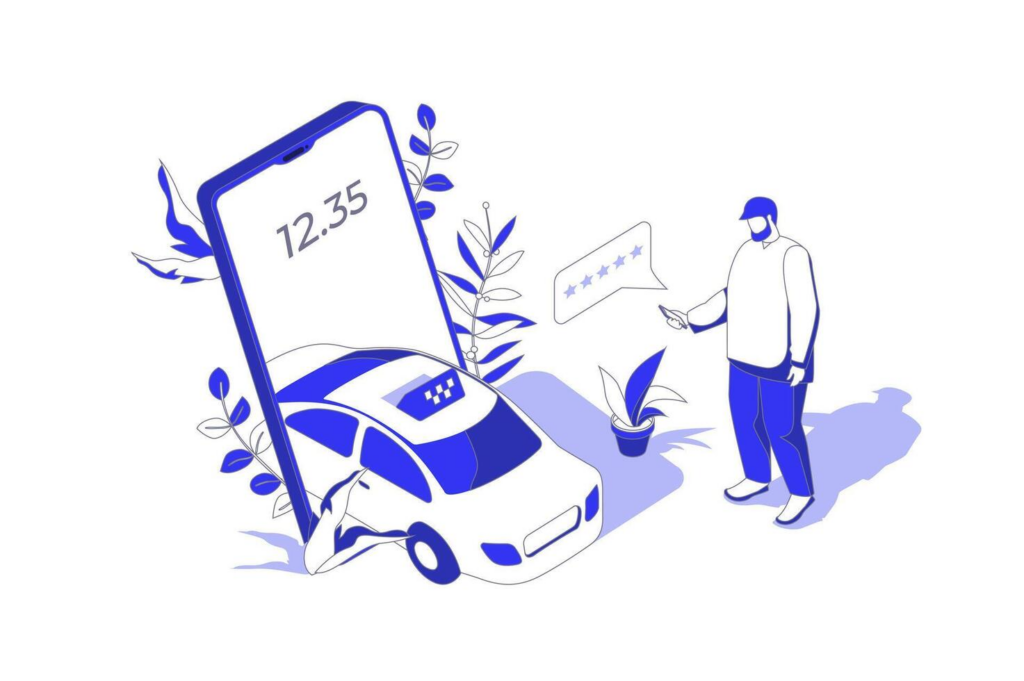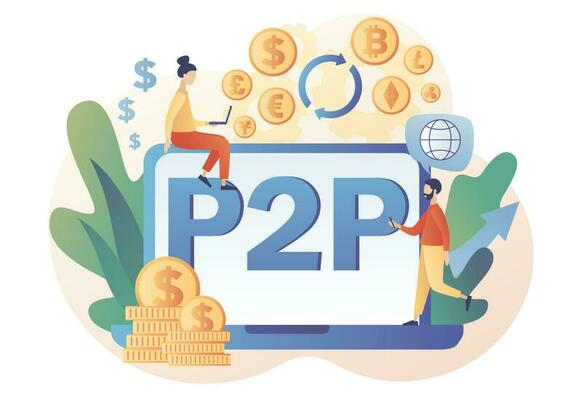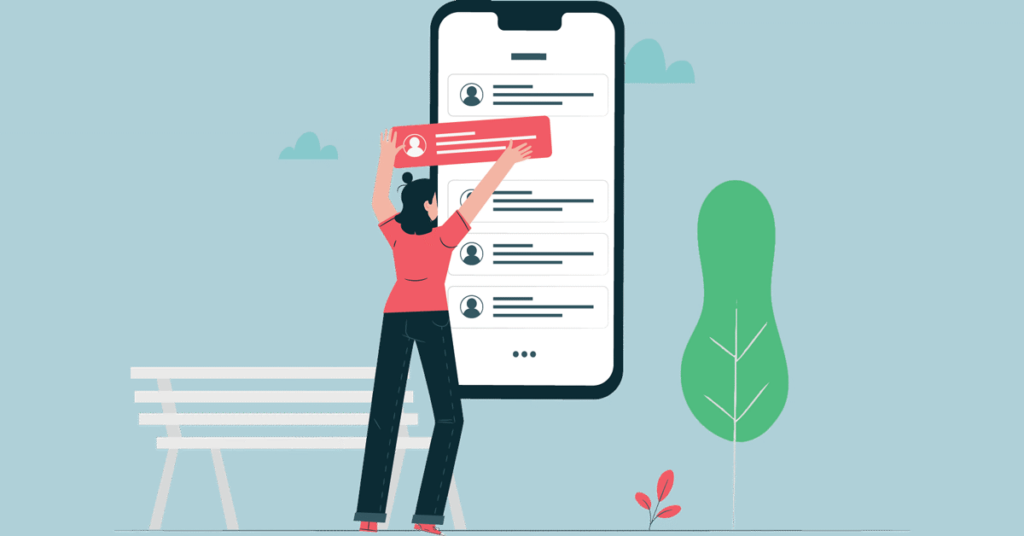As a result of technological advancements, the food business is once again flourishing. F&B firms alike are benefiting from the rapid advancement of technology. As demand for F&B firms with diverse cuisine themes grows exponentially throughout cities, the food business has emerged as a booming industry.
There are fewer good reasons for small companies not to have a mobile app every year. And if you’re being held back by fear or indifference, consider the damage fear and apathy have already done to your firm. To be successful in a company, it’s essential to know your customers personally and professionally.
In light of this, why wouldn’t you use your smartphone as your primary device? Improving your prospects’ experience in interacting with you? Your F&B mobile app is a lot better investment than any apparent drawbacks. We’ll look at ways that an F&B mobile app might boost sales in this post.
As a result of technological advancements, the food business is once again flourishing. F&B firms alike are benefiting from the rapid advancement of technology. As demand for F&B firms with diverse cuisine themes grows exponentially throughout cities, the food business has emerged as a booming industry.
There are fewer good reasons for small companies not to have a mobile app every year. And if you’re being held back by fear or indifference, consider the damage fear and apathy have already done to your firm. To be successful in a company, it’s essential to know your customers personally and professionally.
In light of this, why wouldn’t you use your smartphone as your primary device? Improving your prospects’ experience in interacting with you? Your F&B mobile app is a lot better investment than any apparent drawbacks. We’ll look at ways that an F&B mobile app might boost sales in this post.
1. Reservation of Slots Online
When it comes to finding an F&B outlet near your location, several smartphone apps may help you do just that. Such queries are linked to several operational eateries that have registered online. End users can reserve their seats or see whether there is space at a table.
The result is less traffic backed up in front of dining establishments because of this. Besides that, they maintain track of their client’s personal information and send them relevant information like new discounts or special offers.
2. Deals Based on Locations
Apple’s iBeacon should be recognizable to everyone by now. You may set up a tiny device in and around your location to deliver push alerts and bargains to customers who are within a certain distance of your establishment, which will encourage them to dine there at mealtime.
In addition, if you have many locations, you may use a person’s GPS settings to find out where they are and send out appropriate deals. In 119 of its partner F&B firms in London, Bookatable started employing beacon-based technology to deliver push alerts to users within a 50m radius of one F&B firm.
Doing these things could get the attention of app users who were seeking a place to dine but weren’t sure where to start. The booking table enhanced their member F&B firm’s revenue by removing or speeding up the decision-making process for customers. Bookatable uses beacon technology to provide bargains depending on a user’s location.
In addition to sending out push alerts about specials to encourage additional purchases, you can ensure that guests know where they’re going, locate the appropriate area, and don’t get diverted into another F&B firm as they’re walking the last stretch to your firm’s front door.
3. A Way to Grow Bookings
The daily average number of guests served is a straightforward key performance indicator (KPI) for an F&B business. When used to compute total sales per person, it is a reliable barometer of growth. No-shows are a common problem at F&B firms that take reservations, making reservations a touchy subject. In addition to being an industry standard, they are often the sole indication of a busy mealtime for out-of-the-way eateries.
Bookings, on the other hand, are a hassle for all parties concerned. Before giving up and wishing for the best, clients must first wait for someone to take their phone before finding out when they can genuinely accommodate them. Having someone ready to answer calls, no matter how rare, is the first step for F&B owners. Not only should this individual be able to handle reservations, but they should also be aware of when to call to confirm a reservation and how to manage the queue.
Phone calls are declining, despite the rise in smartphone users worldwide. From 4 percent in 2013 to over 30 percent in 2016, the percentage of people who don’t make any phone calls at all every week has skyrocketed. Online booking through your website is significantly more convenient, as you’ve already discovered if you’ve made the transition. Using a mobile app’s online booking function is quite similar to using it on your website, but it does have one distinct advantage: push alerts.
Firms can use push notifications instead of individual phone calls to confirm online reservations. Remind them of their reservation and request that they cancel it if they are unable to make it. Include a direct connection to your online booking system in your push alerts if it can handle cancellations. It is just one example of how a smartphone app might assist you in increasing the daily tally of tokens putting holes in your cushions.
It is an excellent example of how even high-end F&B firms like Capital Grille can develop mobile applications that their consumers like using. The first step in making a reservation is to choose an F&B from the many available options and then choose a day and time. You don’t have to play a tiresome guessing game if your favorite time isn’t available because the app provides three other times. Also, you’ll see information on hosting big gatherings or private meals at the bottom of the screen.
If you currently take online bookings on your website, the method should be the same for integrating your app with online bookings. Because it necessitates consumers to sign up for an additional service, using OpenTable can increase customer friction. Still, it also provides your business with additional marketing options while maintaining a consistent booking experience across devices.
4. Menu Card gets a Digital View.
Your firm may use a digital menu card to place orders on numerous websites, such as Foodlitter. As a result of this, customers can place orders online without any fuss and in a matter of seconds. It’s easy to use and gives a great deal of convenience for the end-user. Mobile apps for many F&B firms already offer this feature, but just a handful have integrated digital menu cards into their apps.
By just pressing a button, clients may select what they want to eat. You may also select an F&B based on your budget and culinary preferences. Recommendations are offered to users who haven’t looked through the menu card thoroughly, such as Hello Vino.
5. Online Fast Food Order and Delivery
Customers will be able to book their orders directly through the internet and mobile platforms of fast food businesses, eliminating the need for an intermediary. Customers will find it easy to order food. It saves a lot of time because a mediator doesn’t have to write up the entire order.
Additionally, tracking the delivery of a purchase using a mobile application is convenient and straightforward. After placing an order online, the consumer may also monitor the delivery driver’s progress. F&B owners may also keep an eye on the delivery person’s whereabouts thanks to GPS technology, which improves the delivery procedure as a whole.
6. Standing Out from Competitors
Chain F&B firms have been the primary focus of this article’s app examples. Larger companies are often the first to adopt new marketing techniques, as is the case with many others. Small companies and F&B firms can no longer ignore the advantages of having a mobile app since app creation platforms have made it easier and more inexpensive.
Having your mobile app may provide your F&B with a significant advantage in terms of exposure and sales. Your app and its features and advantages will be more evident if you’re part of the first wave of users. At the same time, if you’re the only F&B offering these services and perks, they’ll be more enticing to potential consumers.
New clients might become long-term customers if your cuisine, atmosphere, and service are as good as your mobile app features. It is important to remember that you want to be noticed for the right reasons. If you want to stand out, you don’t have to have all of the capabilities above in your app.
Cracker Barrel is recognized for its retro-chic decor, including board games and country music playing in the background at each table. Traditional digital games, music, and the ability to identify nearby F&B firms are all that their app has to offer. As long as one feature is well-implemented and provides instant value to both the app’s creator and its users, you may launch the app with only that one feature and add additional only when the time is right.
7. ROI is better on Special Deals
Your app may use push Notifications efficiently to inform your clients about new meals and combos to help you earn high sales on weekdays and quadruple sales on weekends. When it comes to sending out alerts, timing is everything.
A Push Notification regarding your F&B’s special dinner deal can be sent out as early as the morning. Customers are more inclined to visit a business if they have previously justified their decision to do so because of lower prices.
8. Referral and Loyalty Program
Pizza Ranch conducted an offer on Black Friday 2015 that awarded their customers double points for coming in and buying from them that day, which produced 67% more business than they typically do. Their return on investment (ROI) was 780 percent since they used such an effective and low-cost technique.
This strategy has proven successful because mobile loyalty programs are significantly more personal than those that entail handing out a primary punch card to every consumer who purchases a drink. The information and communication are stored on their phone, which they never take out of their pocket.
As a bonus, sending push alerts to loyal customers can remind them of just how close they are to earning their award or advise that they come in for a meal or drink to help them push their point’s totals over the top. Loyalty programs aren’t simply about getting free items.
9. On-Site service gets better.
On-site service and customer evaluations benefit from mobile apps for F&B firms, even if they’re not directly related. Here’s an illustration of what I mean: Take a sandwich F&B that relies mainly on take-out orders from nearby companies during the lunch hour.
From 11:45 to 1:30 every day, your business is crammed with sweating, hungry customers due to its tiny size and lack of seating in the front. They all want to order and go, while some want to stay at a booth and have a cup of coffee. Mobile ordering before customers arrive at your establishment sweating, hungry, and bewildered can help alleviate some of that congestion.
It means that you don’t have to wait for in-store fulfillment, and your team may notice a new order and prepare it for instant carry-out. With a few minutes spent in your business, your carry-out clients have cleared up your little waiting area for other customers and those who want to sit down for a meal. It also speeds up order fulfillment.
10. Reviews of F&B Firms
There are more than a few review websites and apps out there. Because of this, you encourage consumers to utilize your mobile application by allowing new customers to locate reviews of your F&B more efficiently. It’s important to remember that the more useful your app is, the longer customers keep it on their phones, and the more exposure your business receives.
Instead of maintaining most of your evaluations in an app, you may connect straight to the F&B’s page in an external review site or app. Aside from the app, you’re still promoting users to publish or read reviews via this method.
What’s the point of reviews? In addition to allowing customers to chronicle their experience, your organization should view reviews as strategic marketing touchpoints. In addition, what people say and how they respond to you will directly impact your brand. And you should reply to any unfavorable reviews you receive.
In addition to making your app more user-friendly for your customers, it also makes it easy for you to keep track of reviews. In addition, ensure sure your app has a means for you to reply to user reviews. Nevertheless, it would help if you claimed your business on services like Yelp and TripAdvisor so that you may reply to any reviews that are written therein.
After publicly apologizing, have private communication with the reviewer in which you address the issues they brought up in the review. It’s not always the case that bad reviews are unjustified assaults. It’s a good idea to read over the comments to see any difficulties you didn’t know about before.
Conclusion
Having a website doesn’t imply that you don’t need a mobile app as well. It’s time to rethink your digital marketing strategy as more people use smartphones and tablets instead of computers.
On the other hand, a smartphone app can help you target clients who have already expressed an interest in your establishment. To grow your F&B firm, you must attract new clients and keep your current ones happy. And as this essay has demonstrated, a mobile app provides more advantages to you and your clients than a website.

Suggested Reads:
[catlist categorypage=”yes”]



